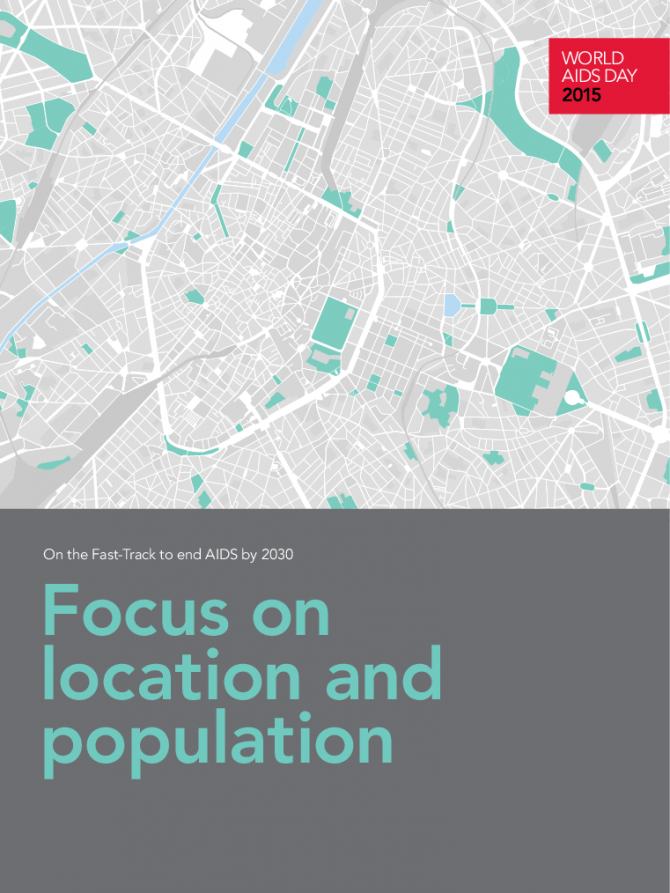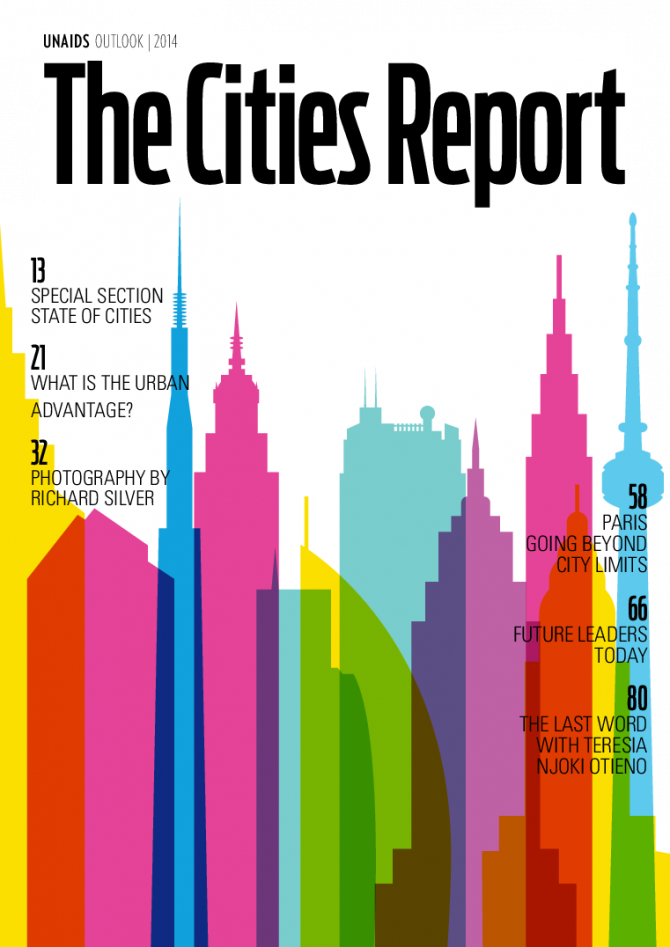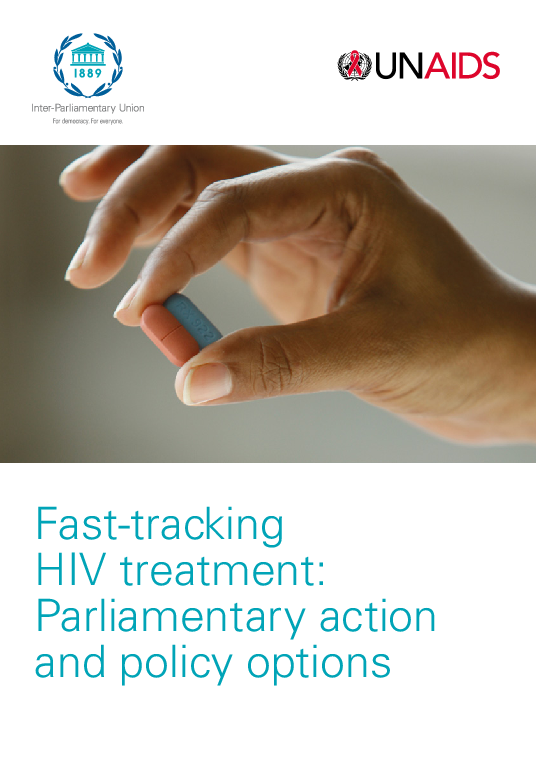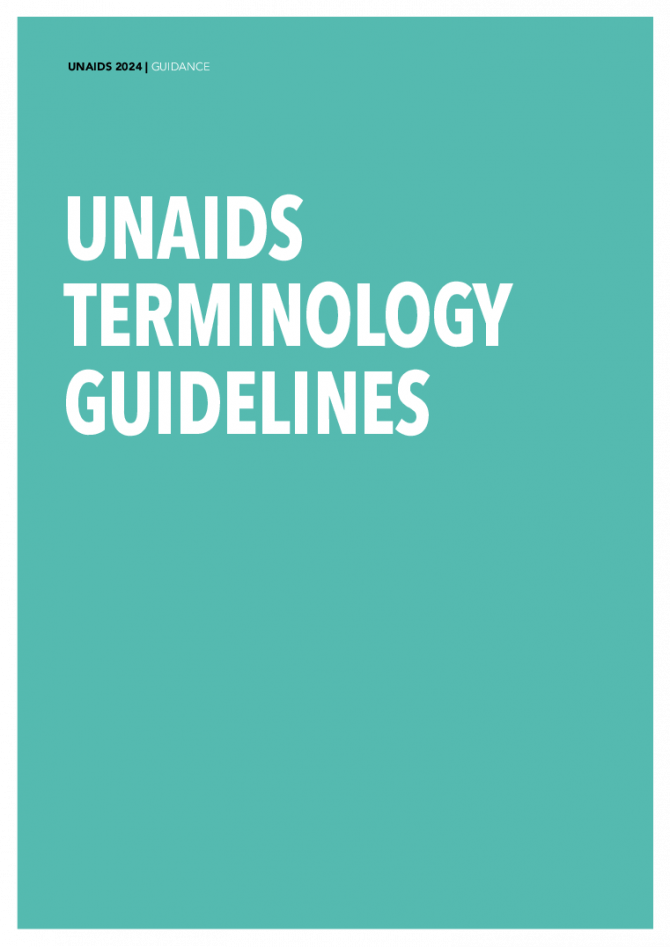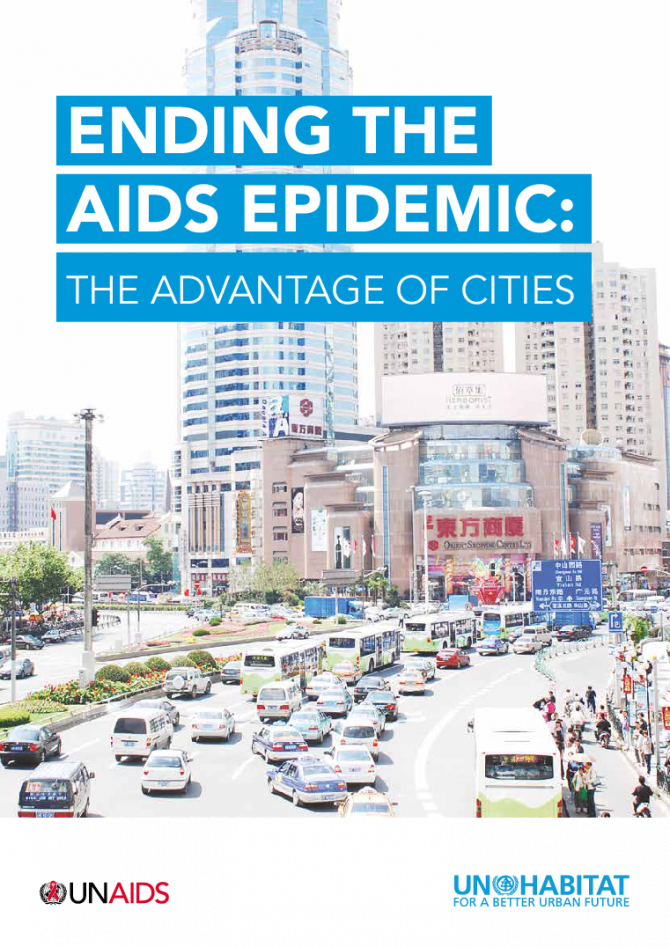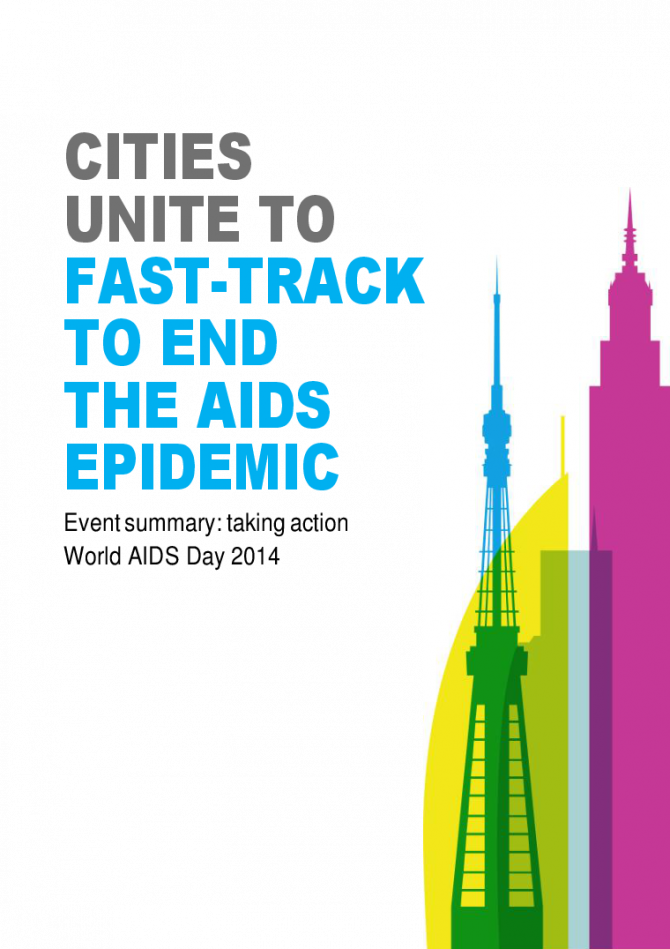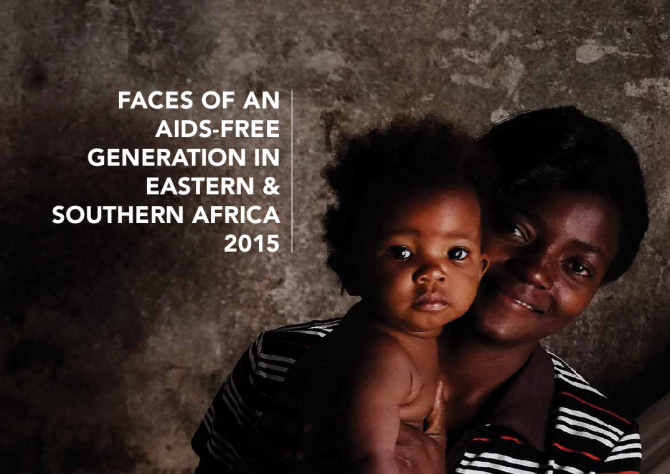Documents
On the Fast-Track to end AIDS by 2030: Focus on location and population
24 November 2015
Within the pages of this World AIDS Day report, Focus on location and population, are more than 50 examples of how countries are getting on the Fast-Track. It shows how governments are working with community groups and international partners to scale up health and social services that put people at the centre and located where they can do more people more good.
Read the publication on ISSUU
- Part 1 (Foreword - Conclusions)
- Part 2a (Where services are needed - Lesotho)
- Part 2b (Malawi - References)
Download
Documents
The Cities Report
28 November 2014
Urban areas are also home to millions of people who have fallen through the cracks of social, political and economic life. People who lack access to education, health services and prevention measures face significantly higher health risks. Under these social conditions, many diseases including HIV spread more quickly. Additionally, poor sanitation and crowding foster the spread of tuberculosis, which is the leading cause of death among people living with HIV. Cities need to address their significant disparities in access to basic services, social justice and economic opportunities. Using a Fast-Track AIDS response, cities can improve social equality for people affected by HIV and those living with the disease, while also addressing related public health challenges in new and innovative ways to prevent disease. Methodology Additional resources
Documents
Fast-tracking HIV treatment: Parliamentary action and policy options
21 October 2015
HIV treatment is a cornerstone of the AIDS response, helping to prevent AIDS-related deaths and avert new infections. It also helps people living with HIV to live close-to-normal lifespans, thereby reducing HIV-related stigma. Evidence shows that HIV treatment, administered ideally as soon as possible after diagnosis, not only slows disease progression but also prevents onward HIV transmission. Moreover, the right to the highest attainable standard of health necessitates access to treatment and other medicines to ensure that people living with HIV can have long and productive lives.
Documents
Sustaining the human rights response to HIV
20 October 2015
The human rights response to HIV, largely implemented by civil society, has been crucial to the HIV response, but it appears that the funding for this work is insufficient and may be threatened further. Based on these concerns—and with the support of the Ford Foundation—UNAIDS commissioned research to better understand the current and future funding landscape as experienced by the civil society groups that are implementing key human rights programmes in the HIV response. This paper presents the results of this research and makes recommendations in an effort to ensure sufficient and sustainable funding for that crucial work until the end of the AIDS epidemic.
Documents
Daily Development: Exploring global development and the people behind it
14 October 2015
Global goals inspire action. They forge new pathways towards a better future and they demonstrate just how inextricably linked we are in this world. Early on in the AIDS response we learned that responding to AIDS could not be done in isolation. We would need a people-centred approach that left no one behind. And the response became an example of what a holistic development agenda could look like when evidence and human rights meet hope and resilience. By reaching and exceeding Millennium Development Goal 6, we halted and reversed the AIDS epidemic and ensured more than 15 million people had access to life-saving HIV treatment. When goals are reached we reach even higher.
Documents
UNAIDS Terminology Guidelines
01 July 2024
Language influences the way we think, how we perceive reality, and how we behave. With respect to HIV, language can embody stigma and discrimination, which impacts access to testing, acquisition of HIV, and engagement with treatment. Language plays a role in supporting respect and empowerment of individuals, as communities shape how they are referred to and the labels they wish to use. Consideration and use of appropriate language can strengthen the global response to the HIV pandemic by diminishing stigma and discrimination and increasing support and understanding for individuals and communities living with HIV. Comments and suggestions for modifications should be sent to editorialboard@unaids.org
Documents
Ending the AIDS epidemic: the advantage of cities
18 September 2015
Cities gave rise to the first cases of HIV infection ever recognized, and the role of urban areas in the global AIDS response has only intensified over time. Globally, 200 cities account for roughly 25% of all people living with HIV. In many countries, a single city accounts for 40% or more of all people living with HIV.
Documents
Cities unite to Fast-Track to end the AIDS epidemic. Event summary: taking action World AIDS Day 2014
15 April 2015
Ending the AIDS epidemic by 2030 is feasible if the world’s major cities act immediately and decisively to Fast-Track their AIDS responses by 2020. Success will rely upon cities frontloading investments and stepping up the pace of delivering HIV services, especially the roll-out of antiretroviral therapy.
Documents
Faces of an AIDS-free generation in eastern and southern Africa 2015
14 August 2015
We present here the stories of women in six countries in eastern and southern Africa—Botswana, Ethiopia, Kenya, South Africa, Uganda and Zambia—joining them in their journey to motherhood. Their tales demonstrate the courage, tenacity and support that is needed to ensure children remain free from HIV infection and that their mothers stay alive and well. We hope that by reading their stories, you will be inspired to action and that you too will join us in ending the AIDS epidemic among children.
Documents
Implications of the START study data — questions and answers
11 June 2015
UNAIDS welcomes additional evidence released in May 2015 that early initiation of antiretroviral therapy has a positive effect on the health and well-being of people living with HIV. The United States National Institutes of Health-funded international randomized clinical trial START (Strategic Timing of Antiretroviral Treatment) has found compelling evidence that the benefits of starting antiretroviral therapy as soon as someone is diagnosed outweigh the risks of delaying until their CD4 count has fallen to 350 cells/mm3.

